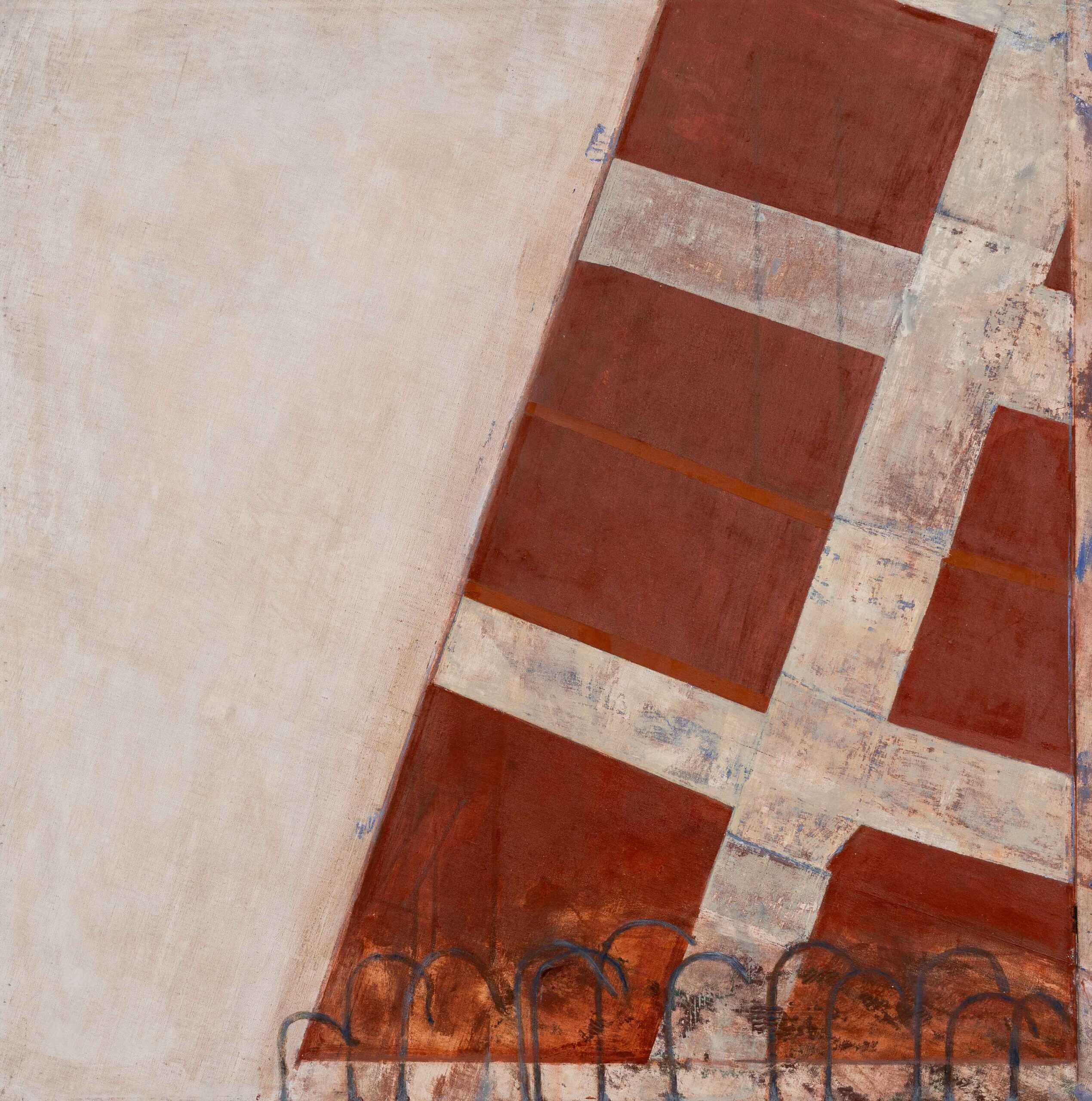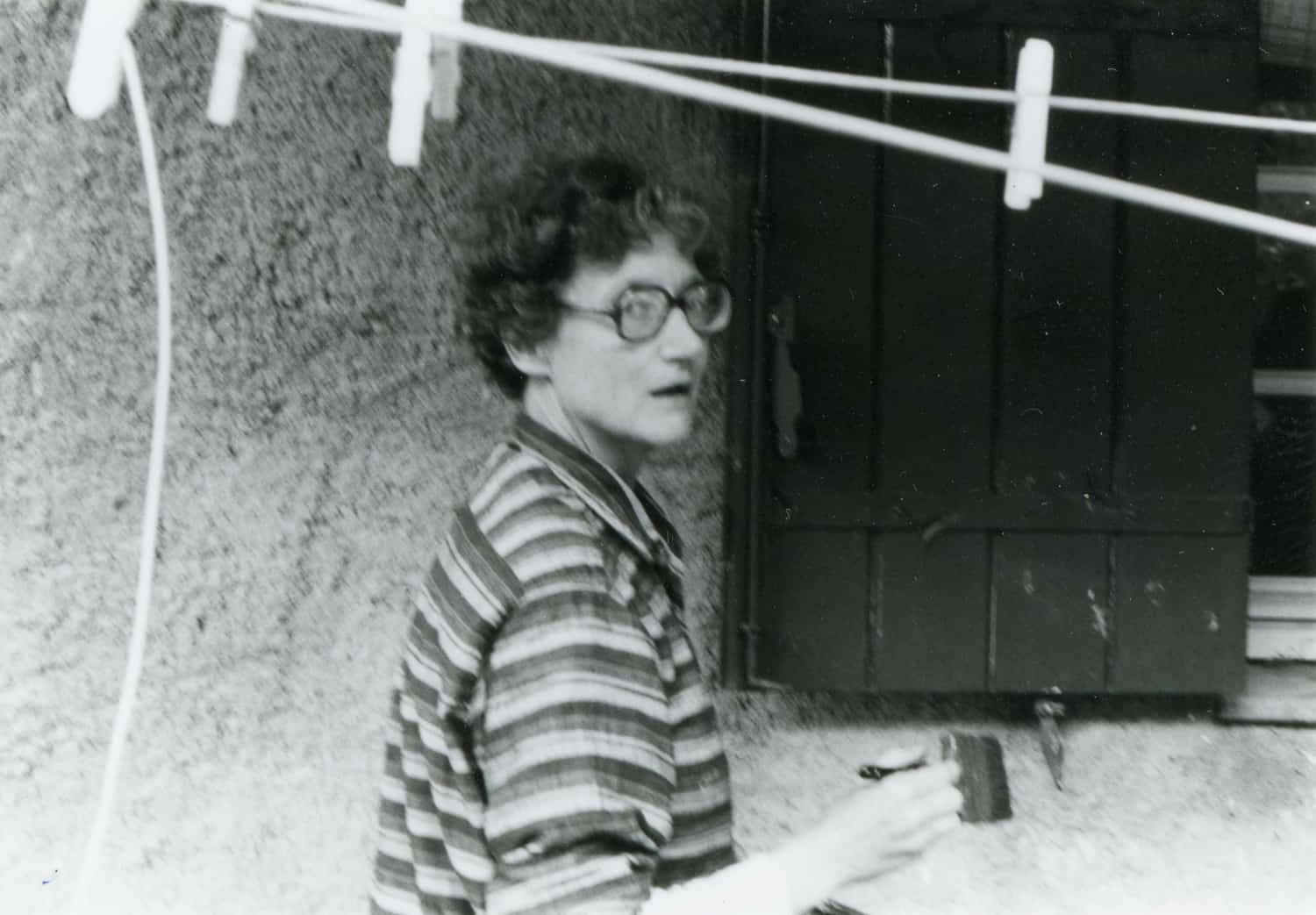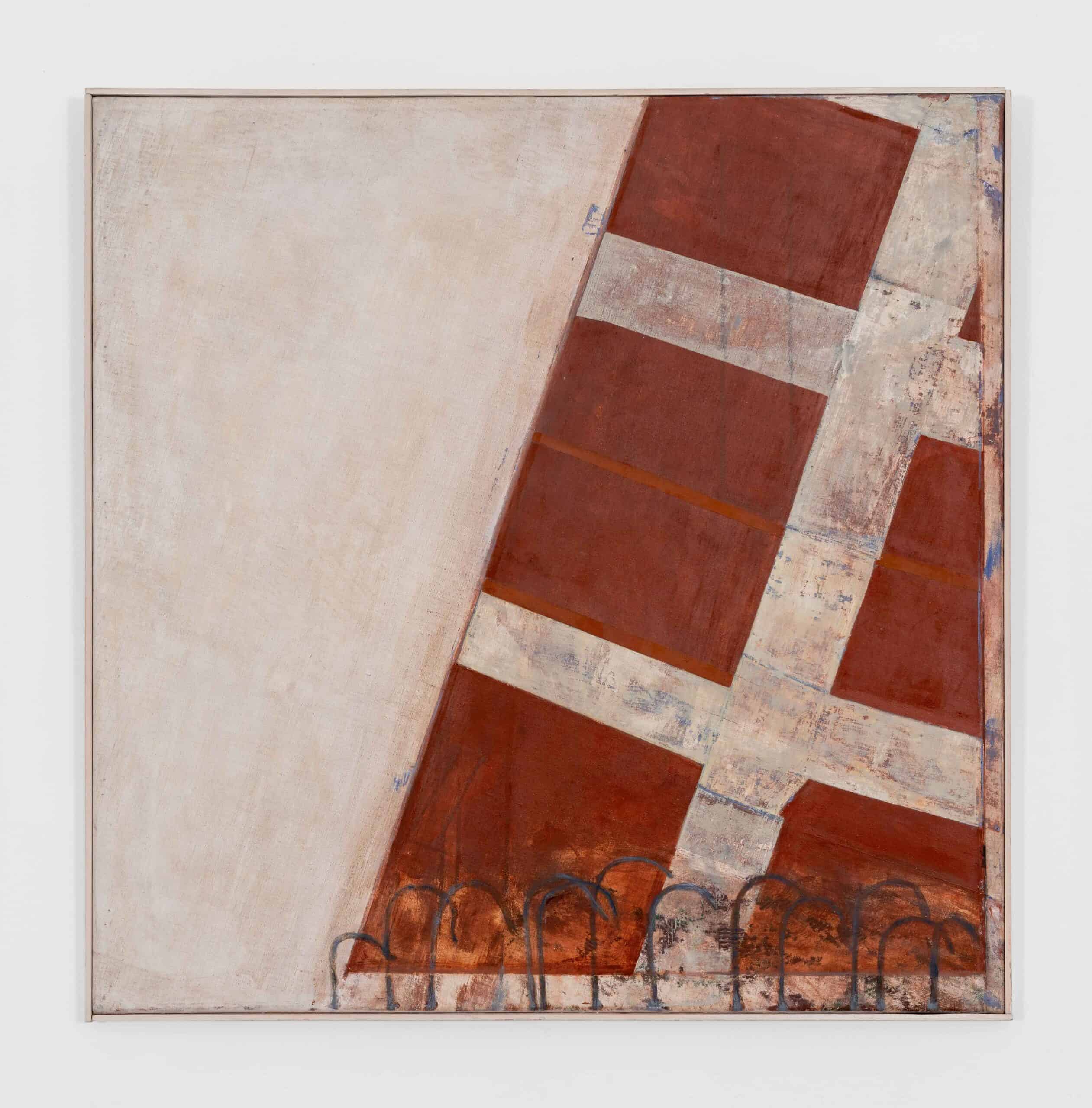
Prunella Clough
B. United Kingdom, 1919

B. United Kingdom1919
Biography
Widely regarded as one of the most significant post-war British artists, Prunella Clough found her subjects in London’s industrial and urban wastelands – docks, power stations, factories, scrapyards and bombsites. Whilst her early work focused on figurative depictions of urban labour forces, finding beauty in otherwise overlooked subject matter, Clough increasingly turned to abstraction over the course of her career. In her later works – somewhere between painting, sculpture and assemblage – Clough incorporated quotidian debris into her canvases, uniquely articulating the excesses of advanced capitalism through the language of abstract minimalism.
Clough was born in London in 1919. She studied at Chelsea College of Art from 1938 then later part-time at Camberwell School of Art. Her studies were interrupted by the Second World War, in which she worked for the Office of War Information as an engineer’s draughtsman and cartographer. Shortly after the war, in 1947, Clough had her first solo exhibition at the Leger Gallery, London, which focused on her depictions of post-war industry and landscapes. In 1999 Clough won the Jerwood painting prize. Her work was the subject of numerous retrospective exhibitions including at the Serpentine Gallery, London, Camden Art Centre, London, Tate, London and Pallant House, Chichester. Clough’s work is represented in major public galleries and museums around the world including the Victoria & Albert Museum London, Tate Gallery, London, British Museum, London, Museum of Modern Art, New York, Art Gallery of New South Wales, Australia, Scottish National Gallery of Art, Edinburgh, Walker Art Gallery, Liverpool and Wakefield City Art Gallery, Yorkshire.
By continuing to use this site you consent with our cookie policy. You can read more here.
Enquire
Thank you for your enquiry. We will be in touch shortly.
